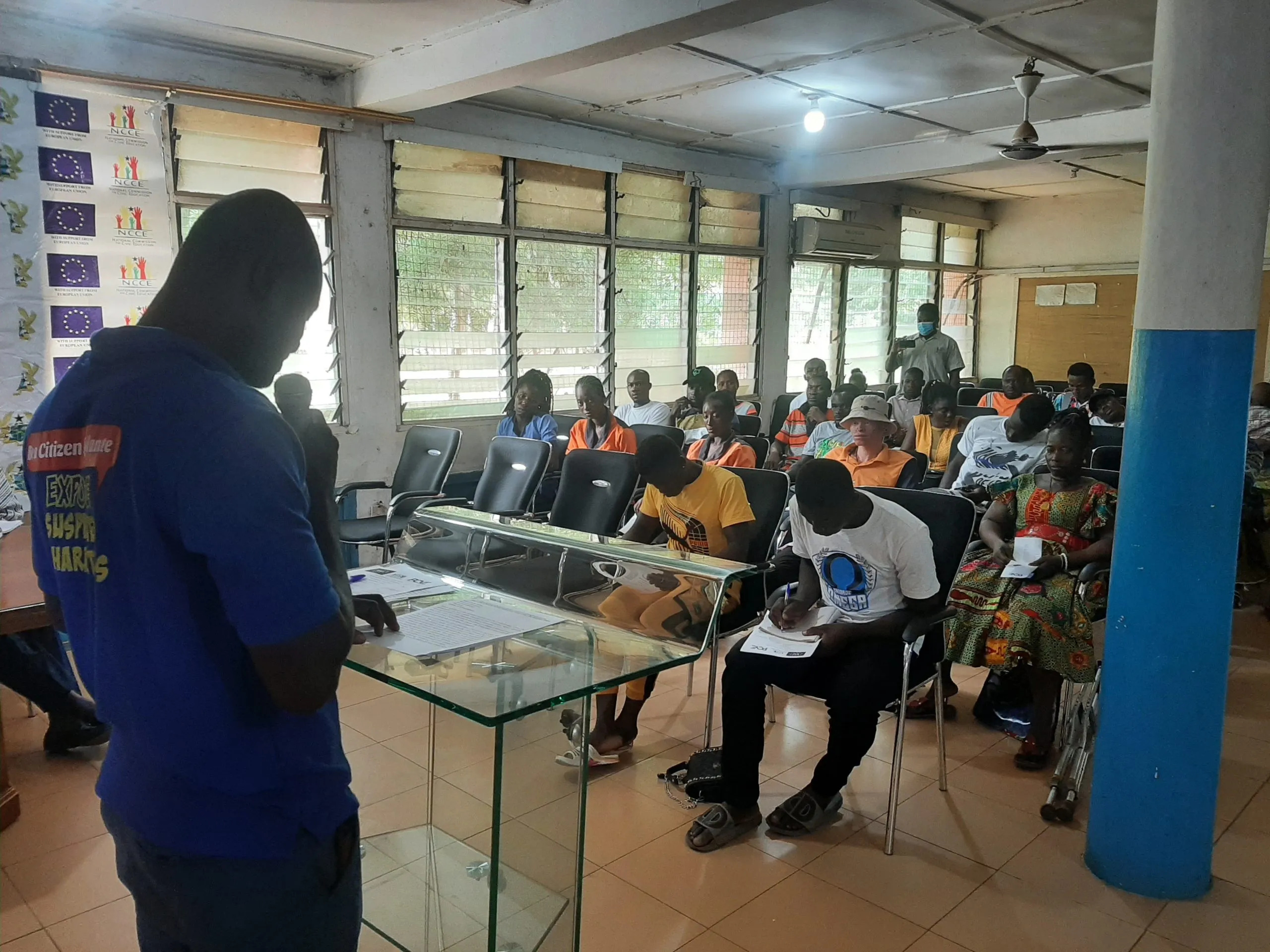Mr Jeffery Adda, the Builsa North Municipal Director of the National Commission for Civic Education (NCCE) has acknowledged the tremendous support of the European Union (EU) to equip Ghanaian youth with relevant information on violent extremism and radicalization.
He said the EU’s support to the Commission over the years to equip the youth with the relevant information on violent extremism and radicalization would guard them against recruitment into extremist groups.
“I wish to take this opportunity to acknowledge the tremendous support from the EU over the years and the current project to equip the youth with the relevant information on violent extremism and radicalism so that, they guard against being recruited to perpetuate violence for which we are grateful to them,” he said.
Mr Adda acknowledged the efforts of the EU at a programme in Sandema, the Builsa North Municipal capital to prevent and contain violent extremism, organized by the NCCE with funding from the EU.
The programme attracted key stakeholders within the Municipality, and offered the opportunity to various youth groups, to be schooled on the essence of community surveillance, awareness creation at worship centres, signs of radicalization, neighborhood watch, and community patrol, among others.
The Municipal Director said one of the most noticeable and newest threats to Ghana’s development was violent extremism, which was a critical area selected by the EU to support.
He said the NCCE conducted a baseline study on Preventing and Containing Violent Extremism (PCVE) action in the Northern areas of Ghana, and the youth who formed a greater proportion of the respondents sampled for the study, were identified to be the most vulnerable to violent extremism.
Mr. Adda said the youth’s understanding and involvement were critical in the fight against violent extremism and reiterated the critical role of the EU in the PCVE project on non-violence and radicalization of youth groups.
He said the PCVE project would inculcate in the youth the spirit of patriotism, awareness of civic responsibilities, inclusive values, and social responsibility, and invoke a sense of belonging to their immediate community.
He appealed to leaders of religious groups to preach peace and national cohesion in their sermons and intervene to resolve intra and inter-religious conflicts to promote religious harmony and propagate their messages to forge peace and unity.
He said the Commission would work closely with religious bodies and communities to create public awareness of the values of mutual trust, tolerance, confidence building, negotiation, mediation, dialogue, and reconciliation with emphasis on indigenous mechanisms for peacebuilding.
“I equally appeal to the traditional leaders to also employ local mechanisms of maintaining peace and peaceful co-existence between and among communities and ethnic groups. This is expected to improve citizens' awareness of their rights and responsibilities as law-abiding citizens and their participation in governance to ensure inclusiveness, build national cohesion, a common sense of purpose and stability,” he said.
Deputy Superintendent of Police (DSP) Francis Kwasi Amankwah, the Municipal Police Commander, stressed the need for residents to be vigilant, look out for people with suspicious behaviour, and report them to security officers or Assembly members for action.
He urged the youth to concentrate more on the behaviour of people, especially strangers rather than their appearance, and said “All must be observant and report suspicious characters to the Police.”
DSP Amankwah advised members of the public to trust their instincts and act accordingly, and further, them to run away to safety in times of danger and take note of happenings to be able to give proper descriptions to security officers to enable them properly to trace suspicious characters.
Source: GNA

_
Follow us on our social media pages for more stories and posts from the NCCE.
https://www.instagram.com/nccegh1/
https://www.facebook.com/nccegh/


Leave a comment